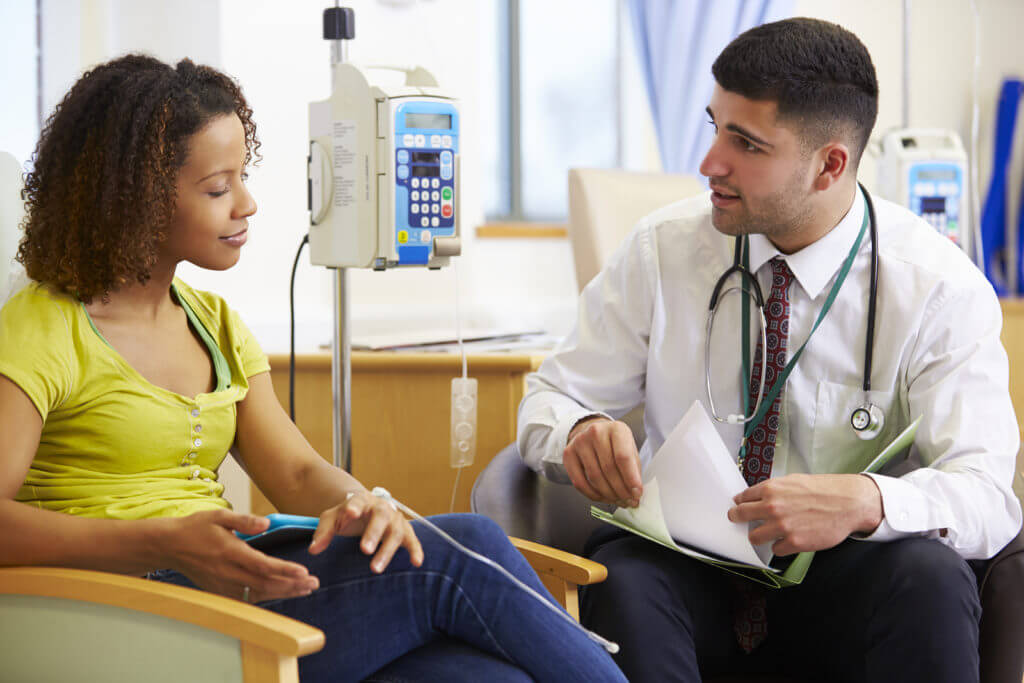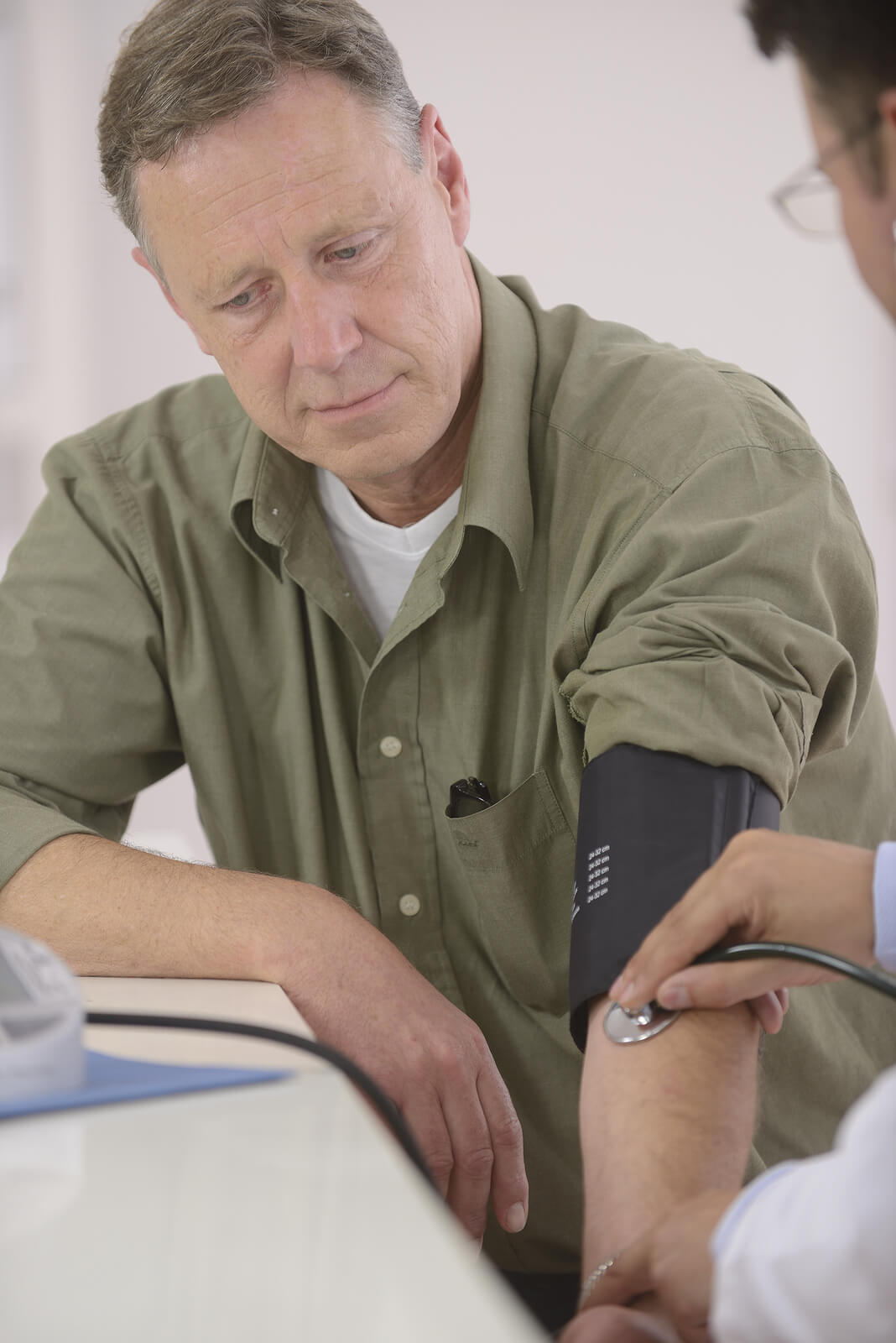Cancer Patients' Health
There are a number of pharmaceutical drugs and medical devices that help fight different types of cancer. It's imperative to monitor these drugs, as they can trigger a range of side effects that in some cases, put a person's health and well-being in danger.
About Cancer Patients' Health
 Treatment options for patients with cancer have progressed substantially in the last couple of decades. Once a diagnosis that brought a sense of fear for the unknown, many cancer patients are now optimistic in fighting and overcoming the disease. In addition, new technology advancements allow doctors to perform more comprehensive screenings than ever before. This allows medical teams across the country to identify cancer sooner, which increases the chances of a successful recovery and remission.
Treatment options for patients with cancer have progressed substantially in the last couple of decades. Once a diagnosis that brought a sense of fear for the unknown, many cancer patients are now optimistic in fighting and overcoming the disease. In addition, new technology advancements allow doctors to perform more comprehensive screenings than ever before. This allows medical teams across the country to identify cancer sooner, which increases the chances of a successful recovery and remission.
Since the early 1990s, the number of cancer-related deaths has decreased, while the number of cancer survivors has increased. For example, the five-year relative survival rate for stage 0 or stage I breast cancer is close to 100 percent. For stage II, that number is right around 93 percent. Other types of cancer have also seen an increase in their relative survival rates, although many research studies and trials are still left to be done.
While there are countless benefits to the medicines that help fight cancer, it’s important to understand their safety and effectiveness. Before taking any new drug, ask yourself if the benefits outweigh the potential risks. Determine the common side effects, as well as those that are rare but could prove more harmful. Staying informed will not only help you make an informed decision regarding your treatment, but will also give you the greatest likelihood of overcoming cancer.
How Drugs can Impact Cancer Patients' Health
Cancer drugs can have varying effects on patients. Often, this is related to the individual’s health condition, type of cancer, drug doses and how frequently the medicine needs to be taken. It can take several days or weeks for you to start seeing any signs of improvement after using a new drug. Even if you do not notice a change in your health, it’s important to continue taking the medicine as directed by your doctor.
Also keep in mind that cancer treatments are aimed at destroying active cells. Although these treatments are beneficial in removing bad cells and preventing new ones from forming, they can also eliminate some of the good cells as well. Because of this, it’s common for patients to experience discomfort, moderate pain and weakness during treatment.
Many of the side effects associated with cancer treatment can be prevented with the help of certain drugs. Talk with your doctor about any uncomfortable symptoms you are experiencing to see what medicines can help alleviate your pain. Be sure to provide your doctor with a list of current drugs you are currently taking to reduce the possibility of an adverse reaction.
Hormone Therapy

Depending on the type of cancer, different hormone therapies may be used as part of a person’s treatment. Hormone therapy treatments are focused on removing certain hormones from the body, which in turn prevents the cancer from growing and spreading further. They are commonly used for breast and prostate cancers, but can also help in other types of cancer. If surgery is needed, hormone therapy may be used beforehand or after recovery. Even after a person has entered remission – when the signs of cancer have diminished – hormone therapy can help prevent the disease from returning.
While hormone therapies play an important role in recovery for many cancer patients, they can sometimes lead to unwanted and even dangerous side effects. Take the antiestrogen medication Tamoxifen, for example. This medication has been used to treat breast cancer and prevent the development of breast cancer in high-risk patients. However, in 2002, Tamoxifen was issued a black box warning because it caused some patients to develop conditions including uterine cancer, strokes, and blood clots in the lungs.
Common side effects of hormone therapy are fatigue, hot flashes, muscle pain and mood swings. Although serious effects are rare, they can include heart problems, strokes, and muscle and bone thinning. Be sure to speak with your doctor about the benefits and possible risks associated with using hormone therapy to treat and overcome cancer.
High Blood Pressure and Cancer
 One of the most common side effects from cancer treatments, including chemotherapy and some hormone therapies, is high blood pressure. In fact, roughly 37 percent of patients with cancer are reported to also have hypertension. Hypertension refers to patients with a blood pressure above 140/90 which can lead to an array of dangerous health conditions such as cardiac problems and strokes.
One of the most common side effects from cancer treatments, including chemotherapy and some hormone therapies, is high blood pressure. In fact, roughly 37 percent of patients with cancer are reported to also have hypertension. Hypertension refers to patients with a blood pressure above 140/90 which can lead to an array of dangerous health conditions such as cardiac problems and strokes.
The cancer treatments associated with heart complications include anthracyclines, trastuzumab and pertuzumab. Anthracyclines are a class of drug used during some forms of chemotherapy; whereas trastuzumab and pertuzumab fight certain proteins found in breast and other cancers. Prescription drug usage should be closely monitored for high blood pressure and other effects. If left untreated, high blood pressure can significantly damage your circulatory system and lead to potentially life-threatening consequences.
Doctors often inform patients about the signs of high blood pressure so they are able to recognize it and seek help sooner rather than later. Key elements in identifying high blood pressure are confusion, severe headache, vision problems, chest pain, difficulty breathing and irregular heartbeat. Additionally, if you have a pre-existing heart condition, your current medication may react negatively to other cancer-fighting drugs. Before taking a medicine, ask your doctor about its effect on the heart and possible complications that may arise.
Anti-nausea and Vomiting Medicines
 When going through a cancer treatment, many patients experience nausea and vomiting.
When going through a cancer treatment, many patients experience nausea and vomiting.
It is most often experienced by individuals going through chemotherapy and radiation therapy, and can set in within 24 hours after the first treatment. Medical professionals will be able to inform you about the medicine’s side effects, including if it has a high or low risk of nausea and vomiting.
Although complications from vomiting are rare, it can lead to dehydration, low blood pressure and muscle weakness. A lack of hydration can harm a person’s kidneys and possibly cause heart issues over time. If nausea and vomiting becomes too much to handle, your doctor may prescribe a medication to help relieve some of the pain. Common anti-nausea drugs include Zofran and Aloxi. While these medicines reduce the severity of nausea symptoms, they can also come with dangerous side effects. For example, Aloxi can trigger hallucinations, lack of coordination, twitching muscles and a fast heartbeat.
Discuss the benefits and complications of anti-nausea medication with your doctor before taking any drug. Sometimes, a health professional will be able to prescribe lower doses to provide relief and reduce the risk of harmful effects.
Get the Help You Deserve
When prescription drugs or medical devices impact a cancer patients health, it can be life-threatening. If you or a loved one has been negatively affected by medications used during a cancer treatment, it's time to get help. Schedule a free legal consultation now.
Last Edited: March 10, 2017